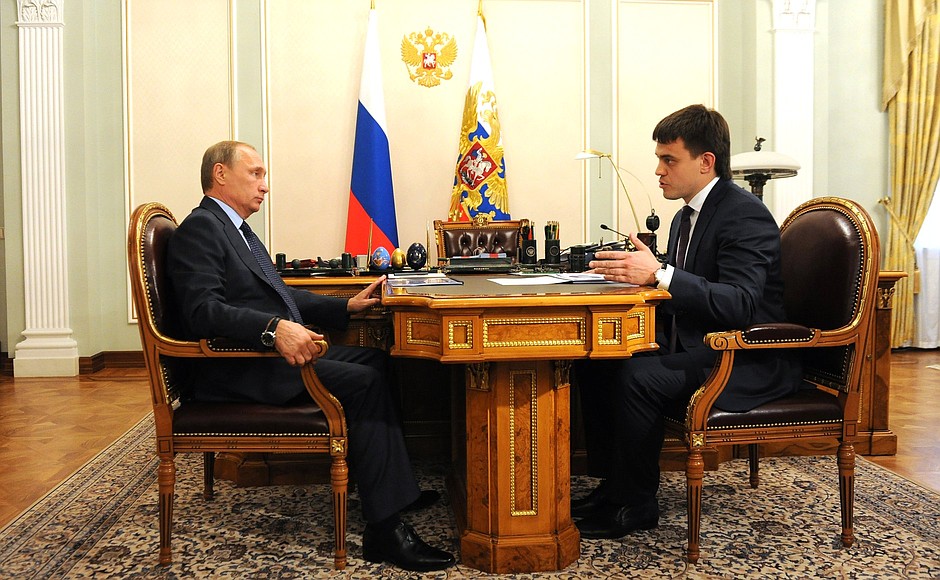
Mr Kotyukov briefed the President on FASO’s current activities and its work with the Russian Academy of Sciences and leading scientific institutions.
Mr Kotyukov said that around six new facilities could be ready this year. They will be well equipped from the outset and will make it possible to carry out top-level research. Some of these facilities could become centres for collective use of scientific equipment, open to a broad range of researchers from the Academy of Sciences, universities, other scientific centres, and even international cooperation.
Mr Kotyukov also spoke about procedures for electing directors of scientific organisations, preliminary budget plans for 2016, and the search for additional funds to support leading scientific centres’ development programmes.
Current areas of work include restructuring scientific organisations, which will see institutes’ legal integration and research coordination within the Academy of Sciences’ programmes. Several pilot programmes of this kind are currently being discussed. They include a programme on materials studies, which will focus on development of new materials and involve six institutes in various cities in Siberia, the Urals and the Volga region. The resulting new technology could find application in aircraft manufacturing, nuclear energy, engineering, medicine and other sectors.